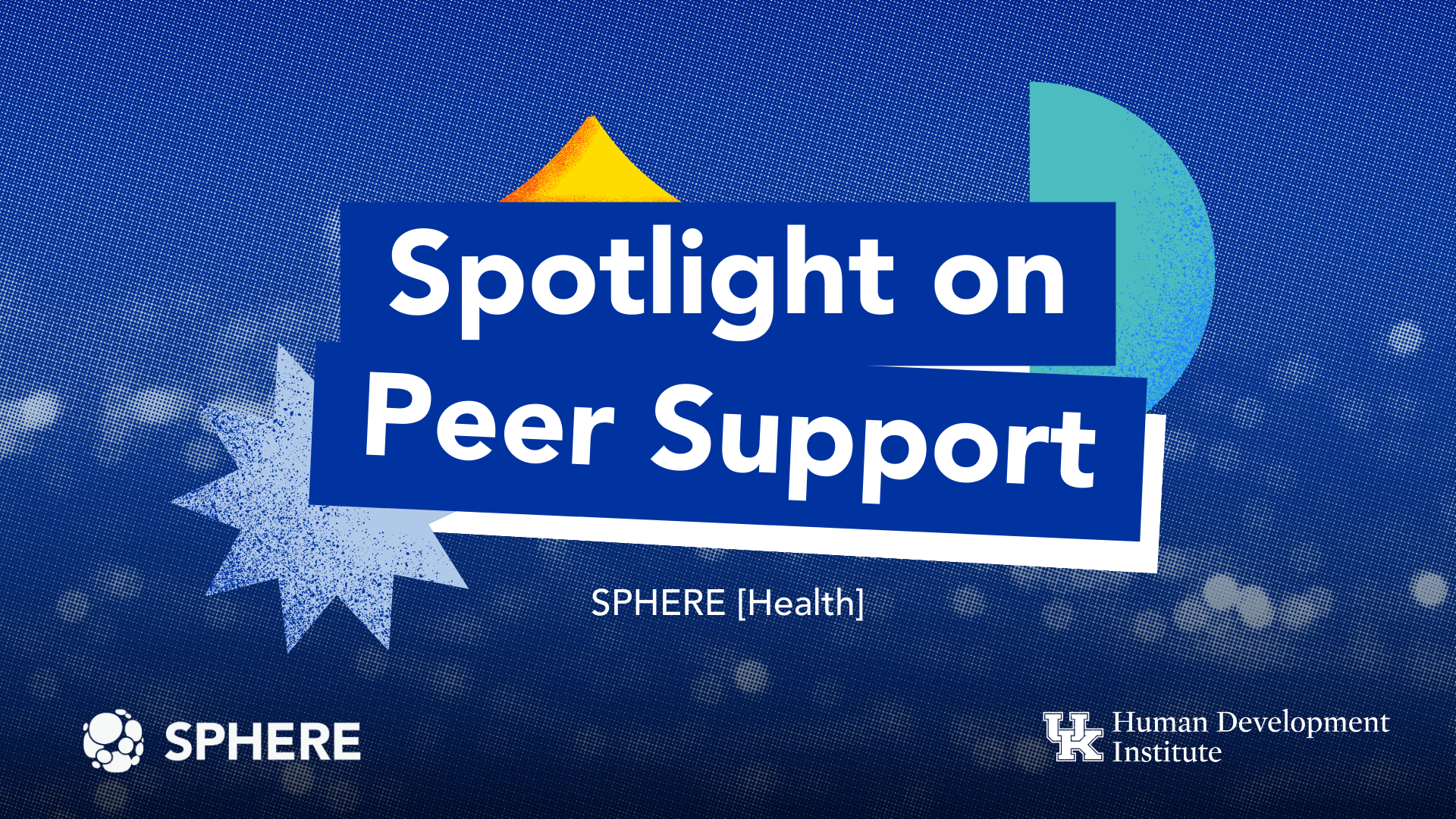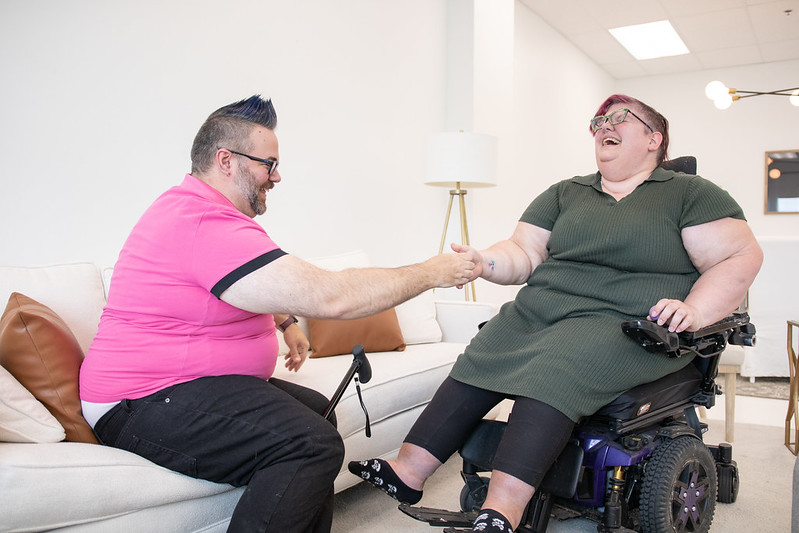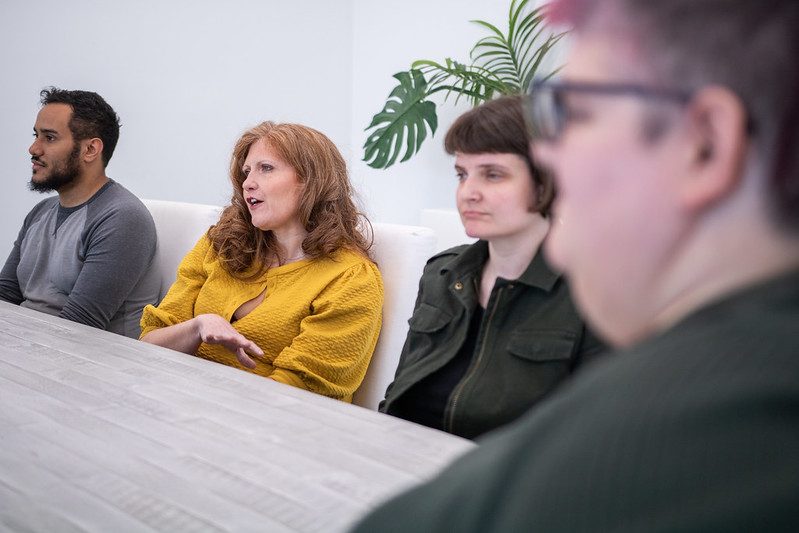Written by Bailey Patterson
This Disability Pride Month, we are shining a spotlight on peer support! Within the mental health community, it is widely understood that lived experience is a valuable asset. People who are experiencing a crisis or need mental health support may seek out the help of doctors or other professionals, but, increasingly, this is not the only option available.
Many organizations are choosing to build systems of support focused on connecting people with mental health conditions to their peers with lived experience. The philosophy of this model of care centers around the leadership of people with lived experience of mental health conditions. These individuals are valuable due to their first-hand knowledge of what others in similar situations may need. Through their expertise in their own lives, they are able to connect with people seeking support in deep and meaningful ways. One important feature of this approach is the emphasis of a lack of hierarchy between someone providing and receiving care. Many times, professionals such as doctors, therapists, and social workers are viewed as being in positions of authority over their patients. They follow policies and procedures that may require them to refer their client to care that the client may not have consented to. In a peer support model, this breaks down that barrier.
One organization championing this approach is Project LETS. Project LETS’ mission is “[to] build peer support collectives, lead political education, develop new knowledge and language around mental distress, organize and advocate for the liberation of our community members globally, and create innovative, peer-led, alternatives to our current mental health system.” To this effort, Project LETS has satellite programs in universities and high schools all over the country where people with lived experience of psychiatric disability are trained to provide peer support. Additionally, Project LETS has an online form where individuals who need support can be matched with a peer for support on a rolling basis.
Project LETS identifies peer support as one of their core values and states, “People who have lived experience with mental illness, disability, trauma, and/or neurodivergence can offer a specific, unique, culturally and socially responsive, and accessible type of mental health care (known as peer support). We do not believe that peer support happens on a hierarchical level — between someone who is ‘recovered’ and someone who is ‘still sick.’”
There is evidence to support this philosophy. One systematic review of peer support for young people with anxiety and depression concluded that “Altogether, the available evidence suggests that peer work is a safe, effective, flexible and cost-effective intervention for adults, which promotes hope, empowerment, patient activation, and self-efficacy, and reduces hospitalisations.” All this considered, peer support is part of the future of effective and liberating crisis care for people with psychiatric disabilities.
To learn more about peer support visit these resources:
When There’s a Crisis, Call a Peer by The Bazelon Center for Mental Health Law


